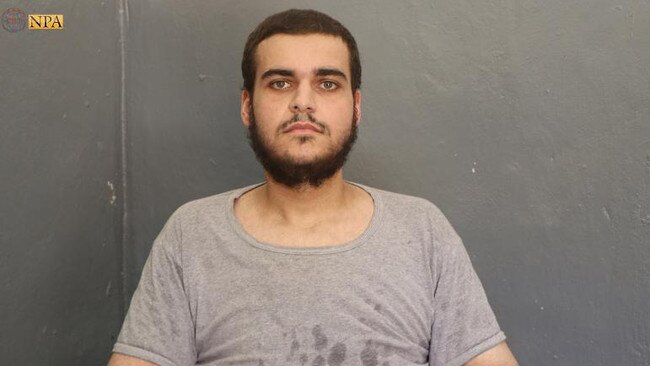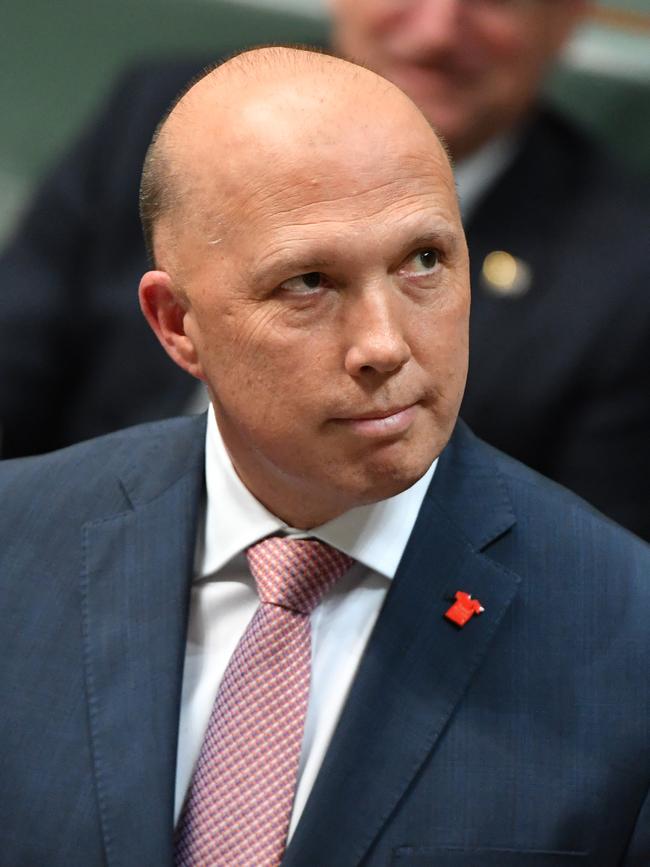AFP probes Aussie terror fighters over Islamic State sex slavery
Australians fighting with ISIS investigated over allegations they bought and raped Yazidi women.

Australians fighting with Islamic State are being investigated over allegations they bought Yazidi women, raped them and held them as sex slaves, as part of a widening AFP probe into jihadis.
The Australian can reveal that Australian Federal Police investigators have been sent to Europe to interview suspected sexual assault victims as part of a wide-ranging investigation into dozens of Australians in northern Syria.
Investigators have collected a number of harrowing and disturbing statements from the women, who have been resettled as refugees in Europe.
The women have offered graphic descriptions of the brutal treatment they say they suffered at the hands of Australian fighters.
- READ MORE: Brides of ISIS need DNA tests to return
The allegations have emerged as the AFP ramps up its investigations of Australians in Syria who fought with Islamic State.
The AFP has sent at least four extra police officers to Jordan tasked with gathering evidence against the Australians marooned in the al-Hawl refugee camp and in Syrian army detention.
They are in addition to the two AFP liaison officers permanently stationed there.

The AFP has also doubled the size of its Australia-based team of investigators with a view to drawing up indictments against foreign fighters. Most of the attention so far has been on the Australian men, thought to number fewer than 20, who are being held in detention by the Syrian Defence Force.
In addition to the string of terrorism charges they may face, several are also being investigated for sexual servitude or sexual assault stemming from their alleged treatment of the women who were bought and sold at Islamic State “slave auctions’’ across the caliphate.
Among those held by the Kurds is Sydney man Hamza Elbaf, who in 2014 made national headlines after he travelled with his three brothers to Syria and joined Islamic State.
The 27-year-old played down his role within the terror group, telling Kurdish media he was a cook, not a combatant.
He denied any involvement in the trafficking of sex slaves, claiming he had heard of the practice but had not participated in it.
“[It was] impossible,” Elbaf said. “They wouldn’t let you. It was done secretly. Only high-ranking people and princes in the Islamic State had access.”
Investigations are being ramped up as the Morrison government moves to harden its line against returning foreign fighters.

Home Affairs Minister Peter Dutton has said it was “very difficult’’ to see how Australians who joined Islamic State could come back.
The AFP officers seconded from the agency’s counter-terrorism team to travel throughout the Middle East and Iraq have been collecting evidence against suspected Australian members of Islamic State.
The Australian has been told AFP investigators have retrieved phones, laptops and other devices thought to belong to suspected jihadis, as well as reams of documents meticulously maintained by Islamic State, which are now being used to build criminal cases.
Among the documents seized are hospital records, resumes and even hotel guest books bearing the signatures of Australians who travelled into the Islamic State caliphate.
Investigators are paying particular attention to phone records and photos retrieved from devices, which they hope will prove the Australians were actively engaged in hostilities for Islamic State.
While there is no talk of extraditing any of the Australians still in Syria, police want to be in a position to prosecute should any of the men come home, although they acknowledge most are unlikely to.
There are about 63 women and children in refugee camps in northern Syria. More than half are thought to be children under the age of five.
An AFP spokesperson said the agency had deployed investigators to Amman, Jordan.
“The AFP has also increased the number of investigators based in Australia working on investigating Australians of counter-terrorism interest believed to be located in the Middle East,’’ the spokesperson said.
“The AFP currently has two … investigative teams in Canberra dedicated to this issue.’’

Kamalle Dabboussy, whose daughter Mariam is one of the Australian women in the al-Hawl camp, said the priority must be on ensuring the wellbeing of women and children in the camps.
“We would suggest that the women need to be made safe in the first place, then the assessments completed, then due process should take its course,’’ Mr Dabboussy said. “If they’ve done something wrong, then they should be accountable. We would say at the moment we have seen no evidence of wrongdoing. The women were not combatants.’’
The boost in resources represents a significant change in posture for the AFP.
When the threat of Islamic State was at its greatest, the AFP and ASIO prioritised nearly all of their resources into preventing domestic attacks. However, the collapse this year of the caliphate and the mass flight of Western fighters that followed has made the job of investigating Australian jihadis more pressing and in some respects easier.
Kurdish authorities who run the camps maintained excellent records, meaning Australian authorities can for the first time say exactly who is in the Syrian-Iraq theatre and what their location is.
On Tuesday, Mr Dutton said the Australian government would not put any of its own people in harm’s way to help get Australians stuck in northern Syria home.



